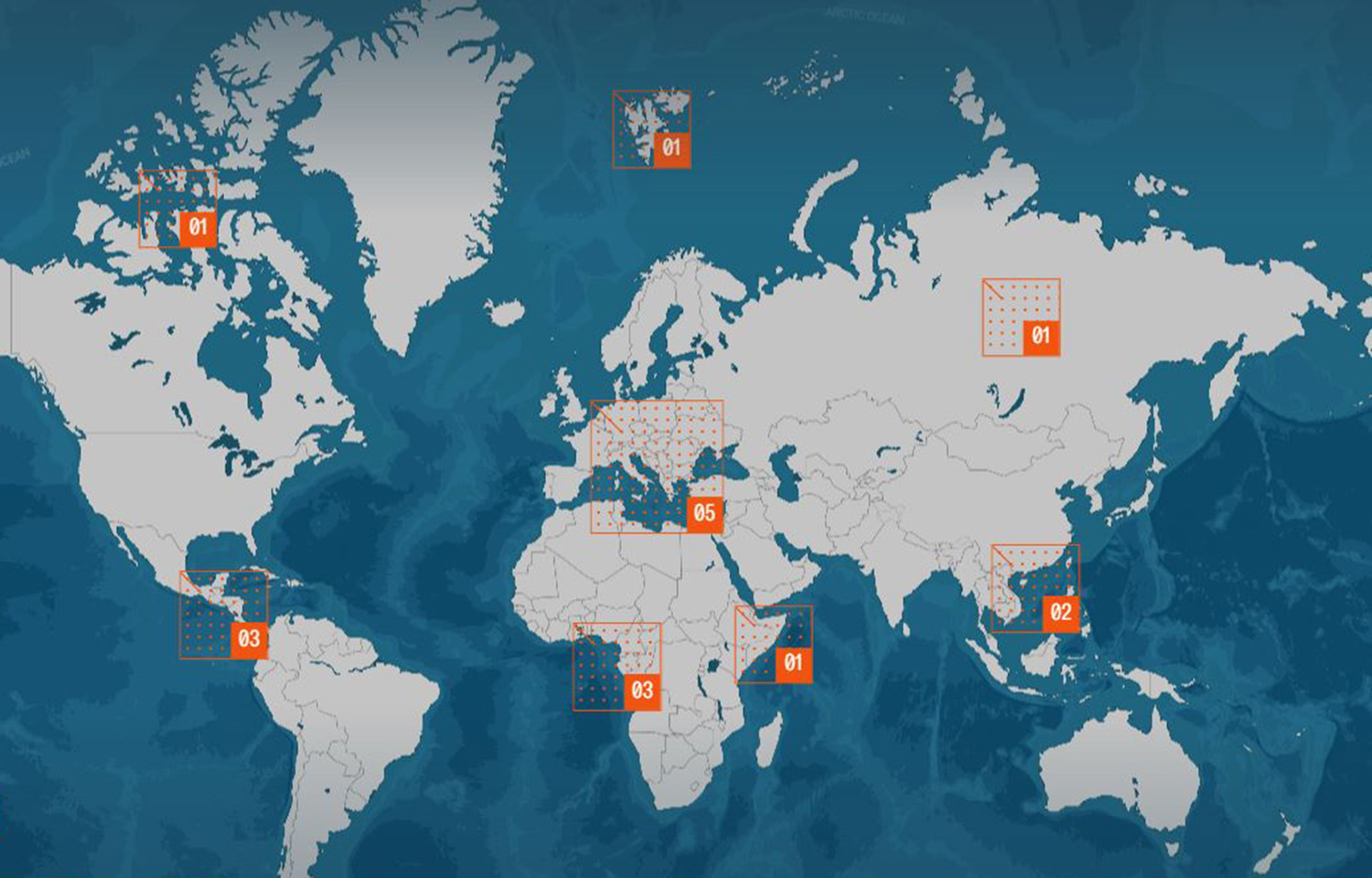The World Wildlife Fund's (WWF) Ocean Futures Project has revealed areas where climate-driven fish migration could cause political, social, and financial unrest, with the results surprising researchers working on the project.
The program, launched in November 2023, aimed to specifically identify areas that will experience maritime conflict or food insecurity due to climate-driven fisheries migration.
Areas researchers found are expected to experience issues due to climate-driven fish migration include the Arctic, South China Sea, and the Western Central Pacific, according to WWF.
“As ice melts, and in particular with the way that Russia, China, the U.S., and Norway are vying over access to the Arctic, there's a moratorium on fishing up there right now and what that might look like in the future,” WWF Senior Director Sarah Glaser told SeafoodSource at the 2024 Seafood Expo Global on 23 April in Barcelona, Spain.
Ecuador was also deemed a hotspot, even before recent unrest began in the country.
Some hotspots, including the eastern and western Mediterranean, surprised researchers, as there's no active conflict in the region. Greece, Italy, Turkey, and other countries in the region are part of this conversation, according to Glaser, and wil require more coordination to ensure vessels move between exclusive economic zones without conflict.
“I don't think of [these areas] as particularly dealing with geopolitical conflicts, but in the eastern Mediterranean, those predictions were driven by pretty significant stock collapses and very poor conservation status of existing fish stocks,” Glaser said.
Hotspots were defined in the project by combining data on fisheries movement with socioeconomic and security information, including nutrition profiles, economic health, the presence of foreign fishing vessels, and contested maritime borders.
The project’s initial rollout combines projections for shifting fish stocks over time driven by climate change and explains how fish migrations hold the potential to increase the risk of competition and conflict in fisheries.
The model does not capture human migration on the ocean as a destabilizing factor, Glaser said.
“That's not in our model, but I see that as being so central to the overall story in the Mediterranean – human migration from North Africa," she said. "So, it's all part of understanding what's destabilizing our maritime space."








